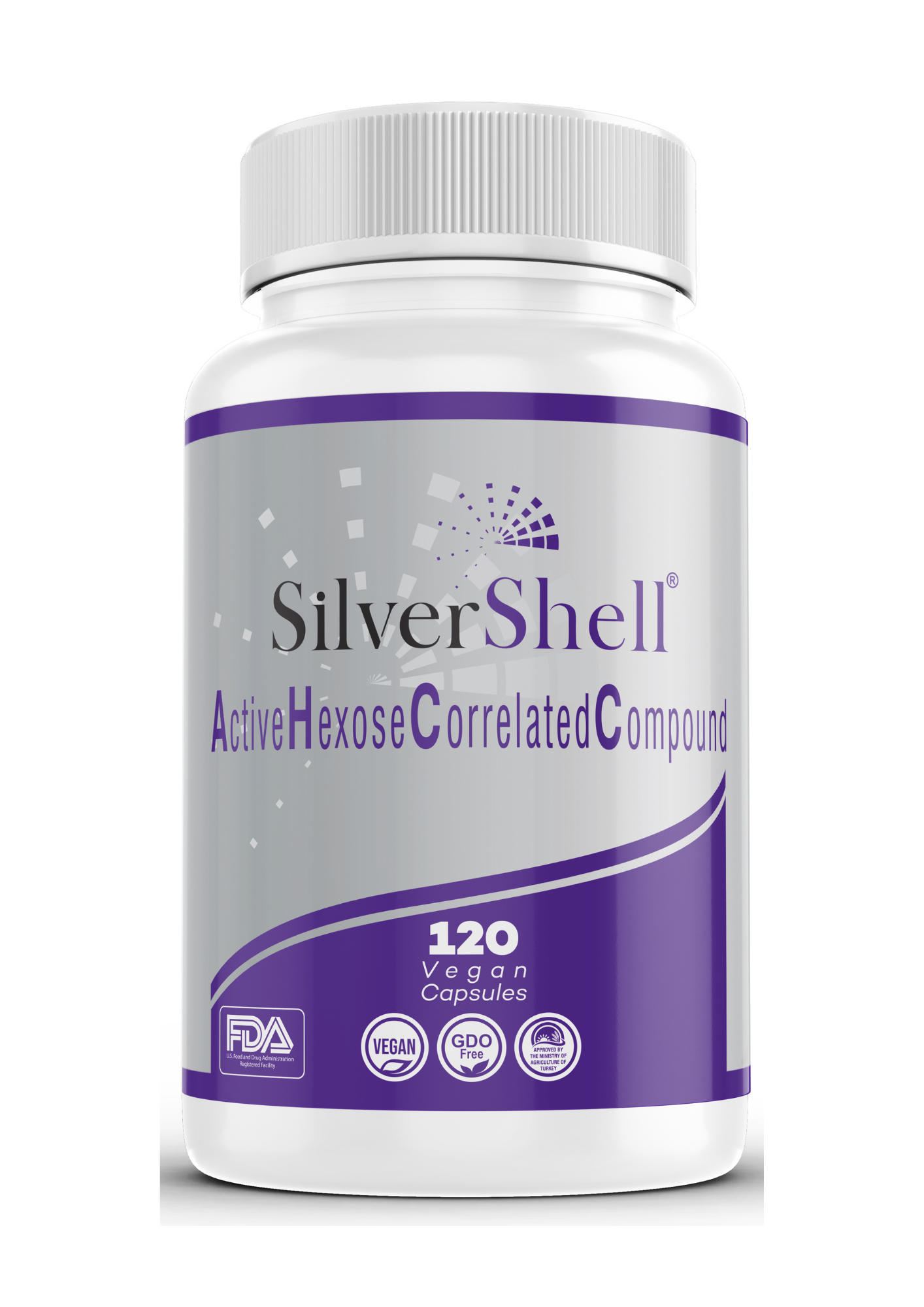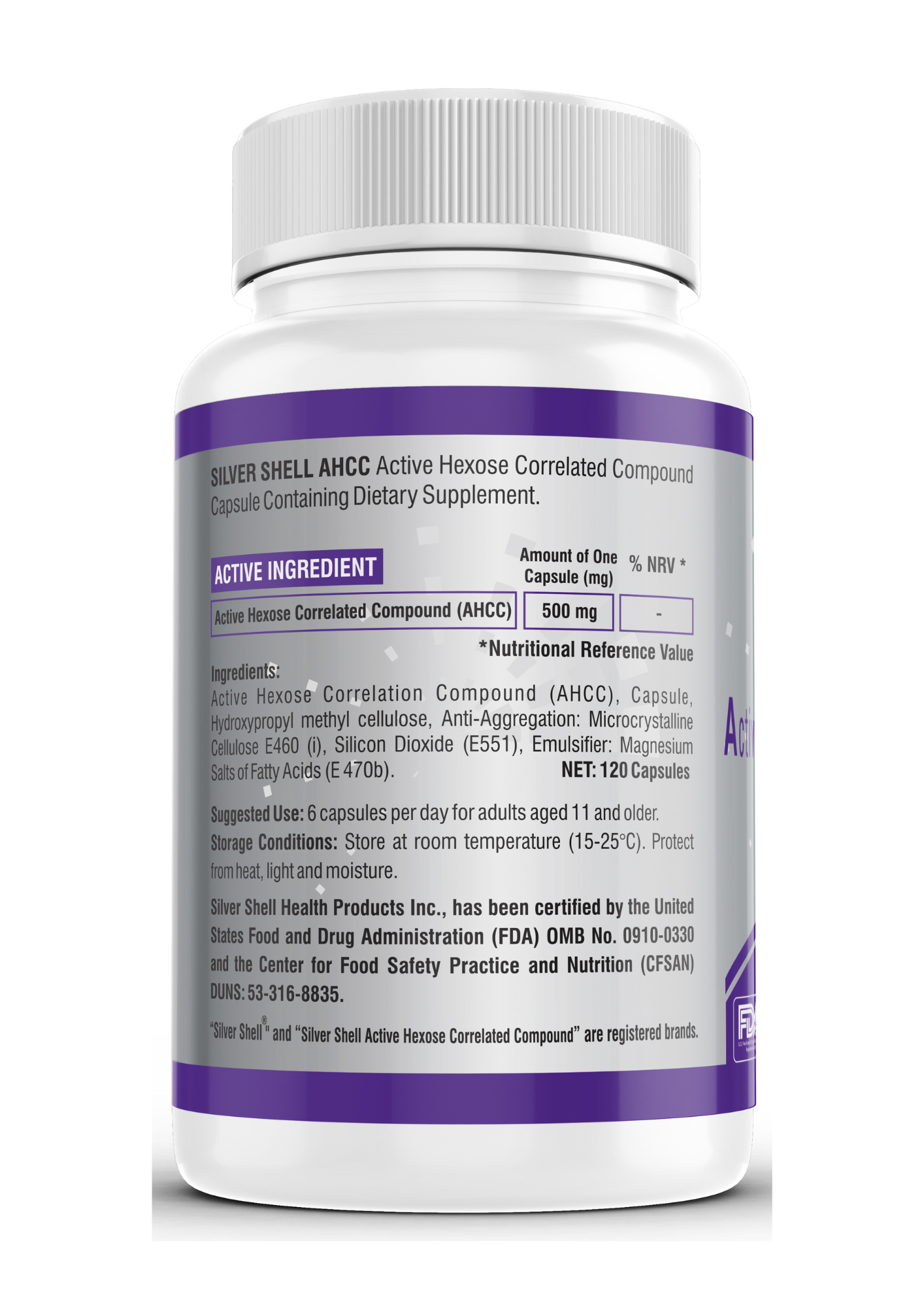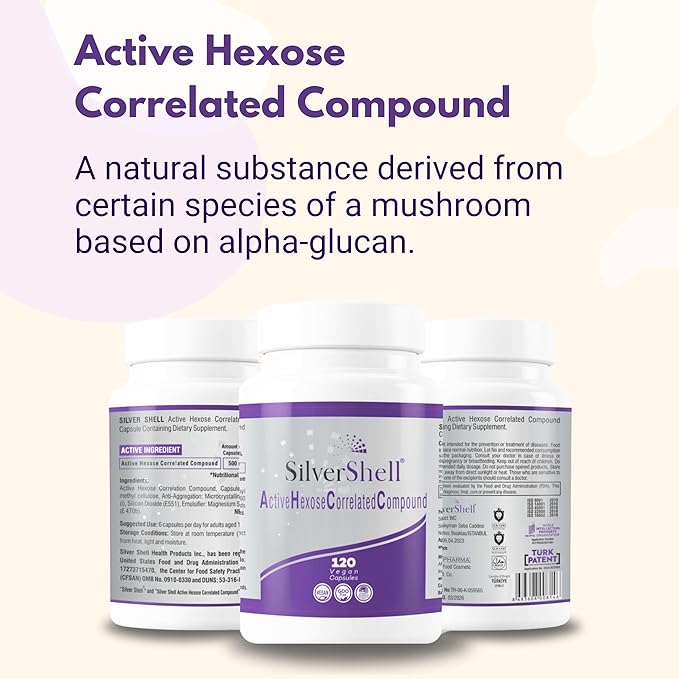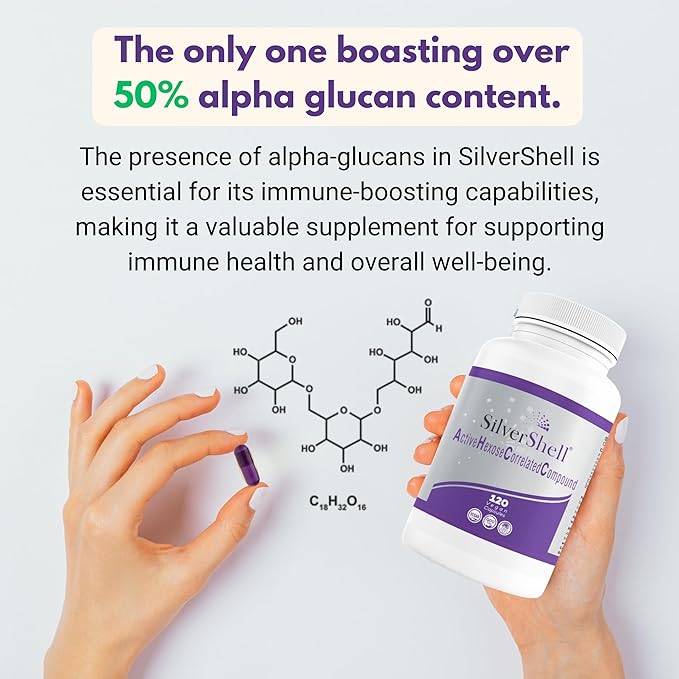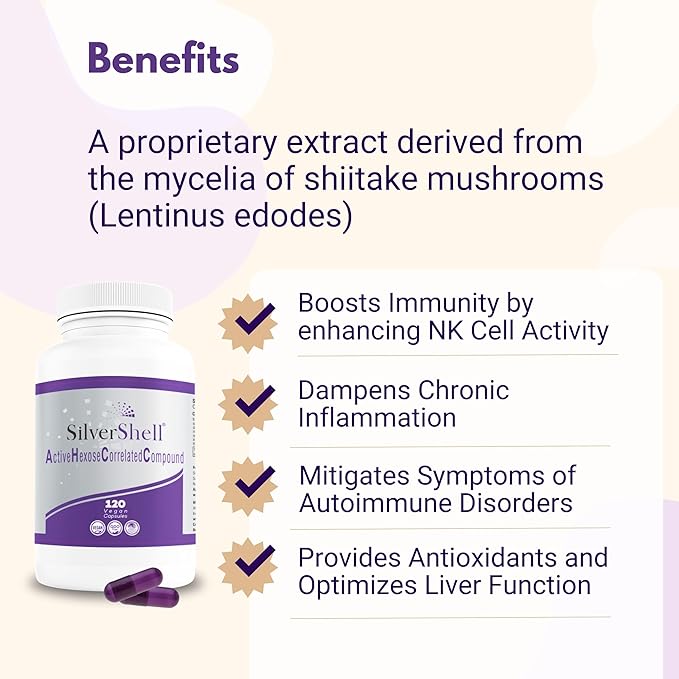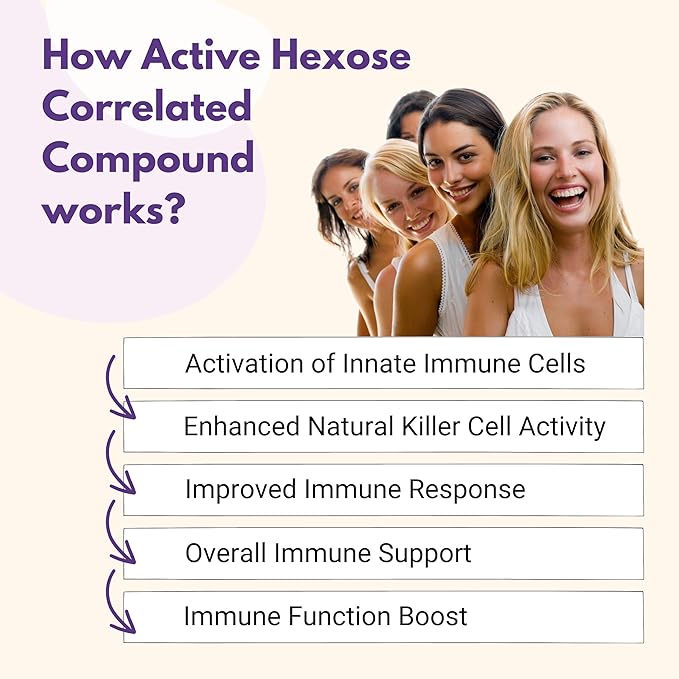| Question | Summary |
|---|---|
| What is AHCC and how does it work against HPV? | AHCC is a nutritional supplement derived from a specific type of mushroom. It boosts the immune system's ability to detect and destroy HPV-infected cells and has anti-inflammatory properties. |
| How effective is AHCC in treating HPV? | Some studies have shown promising results, but larger, more comprehensive studies are needed to confirm these findings. |
| What is the recommended dosage of AHCC for HPV? | Doses ranging from 1 to 3 grams per day have been used in clinical studies. Consult with a healthcare provider for personalized advice. |
| Are there any side effects of taking AHCC? | AHCC is generally safe with few reported side effects. Common side effects may include mild gastrointestinal discomfort. |
| Can AHCC prevent HPV infections? | There is currently no evidence to suggest that AHCC can prevent HPV infections. The best prevention is through safe sex practices and vaccination. |
| Can AHCC cure HPV? | AHCC is not a cure for HPV, but some research suggests it may help the immune system better control the virus. |
| How long does it take for AHCC to work against HPV? | The length of time varies from person to person. Some individuals have shown improvements after several months of taking AHCC. |
| Can AHCC be taken alongside other treatments for HPV? | AHCC is generally safe to take alongside other treatments for HPV. However, it's always important to consult with a healthcare provider before starting any new supplement regimen. |
| Is AHCC safe for long-term use? | AHCC is generally considered safe for long-term use. However, as with any supplement, it's important to consult with a healthcare provider before starting a long-term regimen. |
| Where can I buy AHCC? | AHCC is available in many health food stores and online. One such product is the "Silver Shell AHCC", available for purchase here. |
1. What is AHCC and how does it work against HPV?
AHCC, or Active Hexose Correlated Compound, is a nutritional supplement derived from a specific type of mushroom. It is known for its immune-enhancing effects, which are believed to be beneficial in fighting off infections, including the Human Papillomavirus (HPV).
The mechanism by which AHCC works against HPV is not entirely understood. However, it is thought that AHCC boosts the immune system's ability to detect and destroy HPV-infected cells. This is crucial as HPV often goes unnoticed by the immune system, allowing the virus to persist and potentially cause harm.
AHCC is also believed to have anti-inflammatory properties, which may further contribute to its potential benefits against HPV. Inflammation is a common response to viral infections and can contribute to the development of conditions such as cervical cancer, which is often associated with HPV.
While AHCC is not a cure for HPV, it may help manage the virus and reduce the risk of complications. However, more research is needed to fully understand its effects and potential benefits.
2. How effective is AHCC in treating HPV?
The effectiveness of AHCC in treating HPV is a topic of ongoing research. Some studies have shown promising results, suggesting that AHCC may help clear HPV infections and reduce the risk of associated conditions.
In a pilot study conducted in 2014, for example, 10 women with HPV-positive cervical cancer were given AHCC supplements. After six months of treatment, five of the women tested negative for HPV.
However, it's important to note that this was a small study, and larger, more comprehensive studies are needed to confirm these findings.
Furthermore, the effectiveness of AHCC may vary from person to person, depending on factors such as the individual's overall health, the strain of HPV, and the duration of the infection.
3. What is the recommended dosage of AHCC for HPV?
The recommended dosage of AHCC for HPV can vary depending on several factors, including the individual's overall health and the severity of the infection.
In clinical studies, doses ranging from 1 to 3 grams per day have been used. However, it's important to consult with a healthcare provider before starting any new supplement regimen, as they can provide personalized advice based on your specific circumstances.
It's also important to note that while AHCC may help manage HPV, it should not be used as a substitute for conventional medical treatments. Regular screenings and follow-up appointments are crucial for managing HPV and reducing the risk of complications.
4. Are there any side effects of taking AHCC?
AHCC is generally considered safe and well-tolerated, with few reported side effects. However, as with any supplement, some individuals may experience adverse reactions.
Common side effects may include mild gastrointestinal discomfort, such as bloating, diarrhea, or nausea. These effects are typically temporary and may decrease over time as the body adjusts to the supplement.
In rare cases, individuals may experience allergic reactions to AHCC. Symptoms of an allergic reaction can include rash, itching, swelling, severe dizziness, or trouble breathing. If you experience any of these symptoms, discontinue use and seek medical attention immediately.
5. Can AHCC prevent HPV infections?
While AHCC is known for its immune-boosting properties, there is currently no evidence to suggest that it can prevent HPV infections. HPV is a sexually transmitted infection, and the best way to prevent it is through safe sex practices and vaccination.
The HPV vaccine is highly effective in preventing infection with the most common types of HPV that cause cervical cancer and genital warts. It is recommended for both boys and girls and is typically given in two doses.
While AHCC may help manage an existing HPV infection and boost overall immune health, it should not be relied upon as a method of prevention.
6. Can AHCC cure HPV?
There is currently no cure for HPV. Once an individual is infected with the virus, it remains in their body for life. However, the immune system can often control the virus and prevent it from causing health problems.
AHCC is not a cure for HPV, but some research suggests it may help the immune system better control the virus. In some cases, this may result in the virus becoming undetectable on tests, but this does not mean the virus has been eliminated from the body.
It's important to continue regular screenings and follow-up appointments, even if you are taking AHCC and your HPV test results are negative.
7. How long does it take for AHCC to work against HPV?
The length of time it takes for AHCC to work against HPV can vary from person to person. In clinical studies, some individuals have shown improvements in their HPV status after several months of taking AHCC.
However, it's important to note that AHCC is not a quick fix for HPV. It may take time for the supplement to have an effect, and it should be used as part of a comprehensive approach to managing HPV, including regular screenings and follow-up appointments.
8. Can AHCC be taken alongside other treatments for HPV?
AHCC is a dietary supplement and is generally considered safe to take alongside other treatments for HPV. However, it's always important to consult with a healthcare provider before starting any new supplement regimen, especially if you are currently taking other medications or undergoing treatment.
In some cases, AHCC may interact with certain medications or treatments, so it's important to discuss this with your healthcare provider.
9. Is AHCC safe for long-term use?
AHCC is generally considered safe for long-term use. However, as with any supplement, it's important to consult with a healthcare provider before starting a long-term regimen.
Long-term use of any supplement should be monitored by a healthcare provider to ensure it is safe and effective. Regular check-ups can help detect any potential side effects or interactions with other medications or treatments.
10. Where can I buy AHCC?
AHCC is available in many health food stores and online. When purchasing AHCC, it's important to choose a reputable brand to ensure the product is of high quality.
Our product "Silver Shell AHCC" is available for purchase on our website here.
Before starting any new supplement regimen, it's important to consult with a healthcare provider. They can provide personalized advice based on your specific circumstances and help ensure the supplement is safe and appropriate for you.
Before starting any new supplement regimen, it's important to consult with a healthcare provider. They can provide personalized advice based on your specific circumstances and help ensure the supplement is safe and appropriate for you.
11. Can AHCC be used for other health conditions?
AHCC is not only used for managing HPV but also for various other health conditions. Its immune-boosting properties make it a popular supplement for individuals with weakened immune systems, such as those undergoing chemotherapy or those with HIV/AIDS.
Some research suggests that AHCC may also have potential benefits for liver health, diabetes, and certain types of cancer. However, more research is needed to fully understand these potential benefits and the appropriate dosages for each condition.
It's important to note that while AHCC may have potential health benefits, it should not be used as a substitute for conventional medical treatments. Always consult with a healthcare provider before starting any new supplement regimen.
12. Can children and pregnant women take AHCC?
The safety of AHCC for children and pregnant women has not been extensively studied. Therefore, it's generally recommended that these individuals avoid taking AHCC unless under the supervision of a healthcare provider.
Pregnant women, in particular, should be cautious about taking any new supplements, as they could potentially affect the developing fetus. If you are pregnant or breastfeeding, always consult with a healthcare provider before starting any new supplement regimen.
13. Can AHCC interact with other medications?
AHCC is generally considered safe and has few reported interactions with other medications. However, as with any supplement, there is always the potential for interactions, especially if you are taking multiple medications or supplements.
If you are currently taking any medications, especially those that affect the immune system, it's important to consult with a healthcare provider before starting AHCC. They can help assess the potential for interactions and provide personalized advice based on your specific circumstances.
14. How should AHCC be stored?
AHCC should be stored in a cool, dry place, away from direct sunlight. It's also important to keep the supplement out of reach of children.
Most AHCC supplements come in capsule form, which should be kept in their original container with the lid tightly closed. Always check the expiration date before taking any supplement, and discard any supplements that are past their expiration date.
15. Can AHCC be taken on an empty stomach?
AHCC can be taken on an empty stomach, but some people may experience mild gastrointestinal discomfort, such as bloating or nausea. If this occurs, try taking the supplement with food.
It's also important to drink plenty of water when taking AHCC, as this can help prevent dehydration, which can exacerbate gastrointestinal discomfort.
As with any supplement, it's important to follow the manufacturer's instructions for use and to consult with a healthcare provider if you have any concerns or questions.
16. Can AHCC cause liver damage?
There is currently no evidence to suggest that AHCC can cause liver damage. In fact, some research suggests that AHCC may have potential benefits for liver health.
However, as with any supplement, it's important to use AHCC responsibly and under the supervision of a healthcare provider. If you have a history of liver disease or other health conditions, consult with a healthcare provider before starting AHCC.
17. Can AHCC help with HPV-related warts?
Some research suggests that AHCC may help the immune system better control HPV, which could potentially reduce the occurrence of HPV-related warts. However, more research is needed to confirm these findings.
It's important to note that while AHCC may help manage HPV, it should not be used as a substitute for conventional medical treatments for HPV-related warts, such as topical treatments or surgical removal.
18. Can AHCC help with HPV-related cancers?
HPV is associated with several types of cancer, including cervical, anal, and oropharyngeal cancers. Some research suggests that AHCC may help the immune system better control HPV, which could potentially reduce the risk of these cancers.
However, more research is needed to confirm these findings, and AHCC should not be used as a substitute for conventional cancer treatments. If you have HPV and are concerned about your risk of cancer, consult with a healthcare provider.
19. Can AHCC help with other types of viruses?
AHCC is known for its immune-boosting properties, which may be beneficial in fighting off various types of infections, including viral infections. Some research suggests that AHCC may have potential benefits for conditions such as influenza and hepatitis C.
However, more research is needed to fully understand these potential benefits and the appropriate dosages for each condition. As with any supplement, it's important to consult with a healthcare provider before starting AHCC.
20. Can AHCC help with autoimmune diseases?
Autoimmune diseases occur when the immune system mistakenly attacks the body's own cells. Given its immune-modulating properties, some people may wonder if AHCC can help with autoimmune diseases.
However, the role of AHCC in autoimmune diseases is not well understood, and more research is needed. If you have an autoimmune disease, it's important to consult with a healthcare provider before starting AHCC, as it could potentially affect your condition or interact with your medications.



